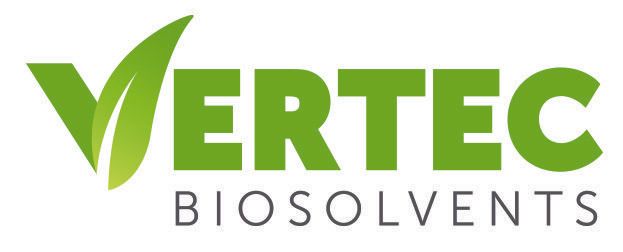Why is D-Limonene a Good Solvent?
August 11, 2022
A d-Limonene solvent consists of the oil that is left after citrus fruits go through an extensive process of extracting the juice from the fruit and then separating the juice from the oil. This ends with a food-grade d-Limonene.
The remaining peels next go through a steaming process which yields even more oil. This is a technical grade d-Limonene used as a solvent in many cleaning products.
D-Limonene is also known as Citrus Terpenes and is “a natural, mild, and environmentally-friendly fragrance, degumming agent, and powerful cleaner.”
One example of this type of product takes the form of VertecBio’s Citrus #1. This is a strong cleaner with a citrus scent that falls under the category of ready-to-use, bio-based solvent cleaners and removers. Also available is VertecBio’s Citrus I20. This is still ready-to-use, but thanks to its composition it is ideal for paint line flushing and oily surfaces. Finally we have VertecBio’s Citrus BA 135. This cleaner and remover is suitable for polyurethanes and for use as an NMP replacement.
D-Limonene Solvent Uses
D-Limonene serves a variety of essential roles across different industries. Primarily, it acts as a replacement for less desirable solvents like acetone, methyl ethyl ketone, toluene, and xylene, along with many chlorinated solvents due to its potent cleaning capabilities. In manufacturing processes, d-Limonene, though not water-soluble by itself, is combined with surfactants to effectively remove tough substances such as tar and asphalt.
In cleaning applications, d-Limonene is a crucial component in formulations blended with surfactants, calcium, magnesium, and other additives. This formulation allows it to tackle fuels, oils, grease, asphalt, and various other contaminants effectively.
The concentration of d-Limonene in products determines its specific use:
- Products containing more than 50% d-Limonene are particularly suited for heavy-duty tasks such as removing adhesives, gum, tar, and wax. Some formulations with up to 90% d-Limonene are used for cleaning trucks, construction machinery, and other heavily soiled equipment.
- Products with 20% to 50% d-Limonene are commonly found in automotive applications like brake cleaners and engine degreasers, where foaming properties are not required.
- Products containing less than 20% d-Limonene, often categorized as detergents, are used in products like glass cleaners, floor cleaners, and upholstery cleaners.
Overall, d-Limonene's versatility and effectiveness make it a preferred choice in various cleaning and
degreasing applications, catering to both industrial needs and everyday household cleaning tasks.
D-Limonene Benefits
There are many benefits to using d-limonene solvent as a cleaner. Some are:
- Biodegradable.
- contains no ozone-depleting chemicals.
- approved by the FDA for use in food.
- approved for use by the EPA since it does not negatively affect the environment.
- not carcinogenic
- a versatile product and even replaces the possibly toxic turpentine in paint thinner.
The Environmental Protection Agency (EPA) classifies d-Limonene as a non-toxic chemical. It biodegrades quickly and is much less toxic than other solvents it replaces, such as chlorinated solvents.
D-Limonene Disadvantages
d-Limonene, while versatile and effective, does come with some considerations. Firstly, it exhibits limited water solubility, necessitating the use of special surfactants for applications requiring aqueous solutions. Users should also be aware of potential skin sensitivity issues, particularly with concentrated forms, emphasizing the need for proper handling and personal protective equipment (PPE).
Furthermore, the strong citrus odor, while pleasant to many, may not be suitable for all environments or preferences. Price volatility is another factor to consider, as fluctuations in citrus crop yields and processing demand can impact product costs and budget planning. Compatibility with certain surfaces should also be assessed, as d-Limonene may not be universally suitable without prior testing.
Despite being biodegradable, its persistence in the environment can vary, prompting careful consideration of disposal methods. Lastly, staying informed about regulatory compliance with FDA and EPA guidelines is crucial due to evolving standards and requirements.
- Limited water solubility requires special surfactants.
- Potential for skin sensitivity, especially in concentrated forms.
- Strong citrus odor, which may not be suitable for all environments.
- Price volatility due to fluctuations in citrus crop yields and processing demand.
- Surface compatibility requires prior testing.
- Biodegradable, but environmental persistence varies.
- Regulatory compliance with FDA and EPA guidelines is essential.
D-Limonene Alternatives
The two most common alternatives to d-Limonene are soy oil solvents and terpenes from pine trees. Both work well, but each has its own drawbacks.
- Soy oil as a solvent is slow reacting. It is oily and due to a limited supply, may be difficult to access.
- Terpenes from pine trees have a terrible odor. If scientists can figure out how to get rid of the odor, it will be a good solvent since the supply is essentially unlimited.
- Like citrus trees, there are a lot of pine trees so the sources for both are renewable.
Vertec Bio’s DLR Benefits
Vertec BioSolvents Inc. has developed the innovative VertecBio™ DLR as a robust alternative to d-Limonene. Here’s why it stands out:
- High-Powered and Cost-Effective: Through extensive research, Vertec BioSolvents Inc. engineered DLR to deliver powerful cleaning performance at a competitive cost. Unlike standard d-Limonene solvents, which can be costly and subject to price fluctuations, the VertecBio™ DLR offers stable pricing, making budgeting more predictable for businesses.
- Environmentally Friendly: DLR is a sustainable choice for environmentally conscious consumers. It boasts a pleasant pine odor and is approved by the EPA. Free from ozone-depleting chemicals and environmentally hazardous ingredients, DLR is 100 percent biodegradable, aligning with sustainable practices.
- Compliance and Safety: Unlike some cleaning products, DLR is not listed on California Prop 65, which alerts consumers about potential hazards from specific chemicals. This distinction underscores its safety and compliance with rigorous environmental standards.
VertecBio™ DLR represents a significant advancement in solvent technology, combining effectiveness with environmental responsibility, making it an ideal choice for various cleaning applications.
A cost-effective, yet high-powered cleaner, VertecBio™ Citrus solvent cleaner products provide a better alternative to d-limonene, xylene, and toluene solvents. This product works well on products work well on epoxy, polyurethane, resins, paints, coatings, and inks.
VertecBio™ DLR is a high-powered, environmentally friendly d-Limonene substitute. With a lower price point and excellent ability to cut through oily materials, adhesive, and inks, this bio-based solvent is the best option for your industrial, pharmaceutical, or chemical needs.
Vertec BioSolvents is an innovative U.S. manufacturer of sustainable, safe, bio-based solvents and solvent blends. We are mindful of the importance of saving the environment. Accordingly, all of our products are made with sustainability and performance in mind. You can safely use them as alternatives to petroleum-based solvents.
Contact us online to discuss your solvent needs. We look forward to helping you find the alternative that will work for you as you strive to create a sustainable future for your business. You may also call us at 630.960.0600 and speak personally to a representative. We provide free samples of any of our products.




